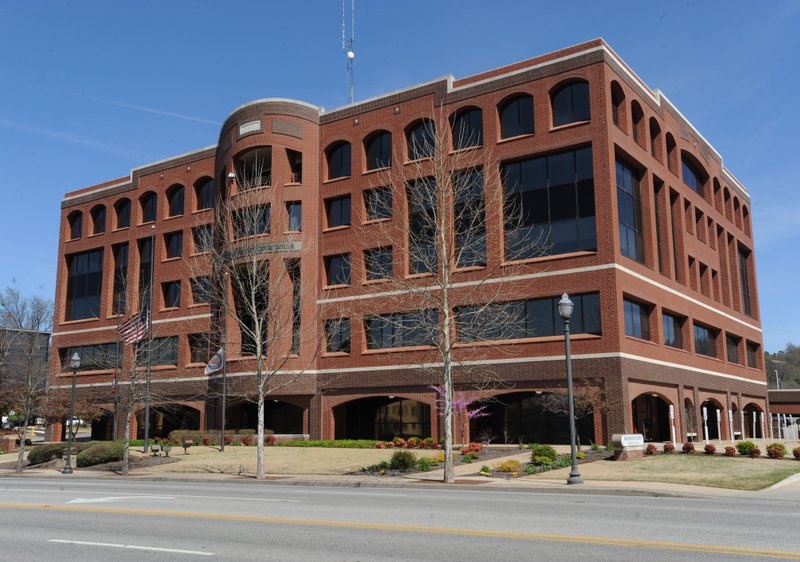WEST FORK -- A long-planned upgrade to the West Fork sewer system is closer to realization with the approval of a package of three loans from the state Natural Resources Commission.
The project will tie West Fork to the Fayetteville wastewater treatment system. The commission announced a 20-year $412,000 loan for the project. Another $4.5 million loan was approved that will be in the form of principal forgiveness. A third loan for up to $3.5 million was also approved.
Natural Resource Commission
The Arkansas Natural Resource Commission was established in 2005, assuming the responsibilities of the Soil and Water Conservation Commission. The commission establishes policy and makes funding and regulatory decisions relative to soil conservation, nutrient management, water rights, dam safety and water resources planning and development.
Source: Staff report
"It's super news," said Mayor Heith Caudle. "We met with them about three weeks ago and discussed what was available. They're willing to forgive $4.5 million of that loan. That's huge for us."
Caudle said the plan is for installation of about eight miles of sewer transmission lines. He said for about half the distance the system will be a gravity-flow line and then a pump station will be built to boost the wastewater the remainder of the distance. Caudle said the line and the pump station should cost about $8 million. With the $4.5 million loan amount forgiven, the city will pay the remainder of the cost.
The city has spent about $2 million replacing sewer lines to prepare for the project that will eventually shut down the West Fork treatment plant.
"We were getting a lot of groundwater inflow in some of the older parts of the system," Caudle said.
State inspectors found in 2014 that, during heavy rain, solid waste was overflowing into the White River, which goes into Beaver Lake -- the source of drinking water for most of Northwest Arkansas. The state fined West Fork $27,500, which was later reduced to $16,500, and ordered the city to stop unpermitted discharges and clean the area near the plant. In a 2014 consent administrative order with the state, West Fork agreed to make improvements to its infrastructure and to begin work toward connecting to Fayetteville's system.
West Fork has 750 to 800 customers on its sewer system, Caudle said. The city's population was 2,317 in the 2010 census. In 2017 it was estimated at 2,587. Caudle said the treatment plant, which was built in the 1970s, is obsolete and near capacity.
"This new system, our projections is that it will take us through 30 years," he said. "That's assuming our population doubles twice during that time. It does give us a lot of room to grow."
Tim Nyander, water utilities director for Fayetteville, said that city's wastewater treatment system has ample capacity to add West Fork's 800 customers. Fayetteville added a second treatment plant in 2008.
"We've still got 20 years to go," Nyander said. "Depending on how the city grows."
Jeff Hawkins, executive director of the Northwest Arkansas Regional Planning Commission, said the funding for the West Fork project is good news for the region. He said many of the smaller cities have older or less capable systems that would benefit from a regional approach. He pointed to Decatur agreeing to accept Centerton's wastewater as one example of communities working together.
"It's really needed," Hawkins said. "I know they've been working on this for some time. There will be a rate increase, and that's going to be painful, but it has to be done."
Caudle said West Fork officials haven't yet calculated the size of a rate increase, but he has been telling residents to be prepared for it. West Fork will pay Fayetteville based on the volume of wastewater sent to Fayetteville. He said an increase might be done in phases.
Caudle said the city is also looking at plans for the old treatment plant but said no decisions have been made. He said the plant sits at the north end of a city park and one proposal has been to completely decommission it and add the 15 acres to the park. He said the city is also considering extending the Razorback Greenway to bring the trails system to the city park.
NW News on 12/03/2018

